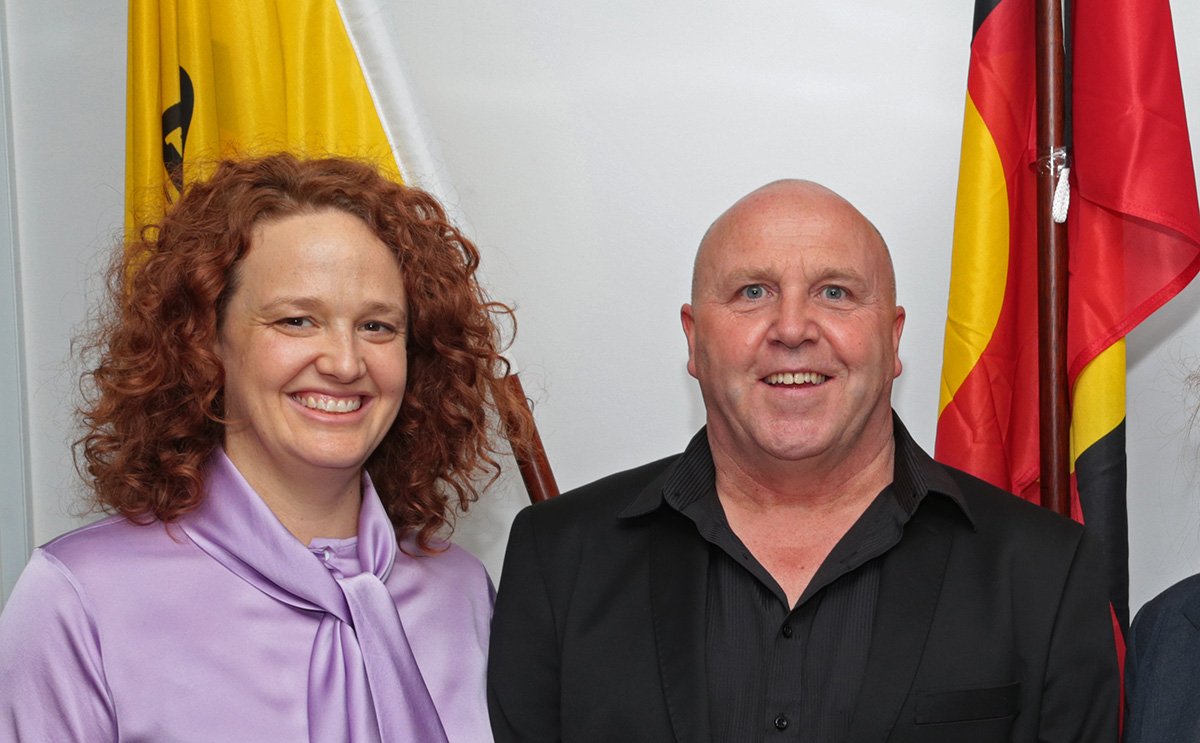This website uses cookies so that we can provide you with the best user experience possible. Cookie information is stored in your browser and performs functions such as recognising you when you return to our website and helping our team to understand which sections of the website you find most interesting and useful.
News
Community-controlled healthcare matters
The community-controlled model used by the Victorian Aboriginal Health Service improves how eyecare is delivered.
Tearing down the barriers that prevent Aboriginal and Torres Strait Islander people from accessing health services is critical to improving outcomes.
The Victorian Aboriginal Health Service (VAHS) and its community-controlled healthcare model has been working towards this goal for 50 years.
Delivering specialist care in this format is a challenge – but teamwork is having a positive impact.

All-inclusive
VAHS was established by Aboriginal community activists to create a holistic service that could deliver healthcare in a trusted, appropriate format.
Mr Gavin Brown, General Manager of operations at VAHS, says the organisation has been at the forefront of the community-controlled Aboriginal health movement.
“The community-controlled health movement has had a major impact in the improvement of our communities in terms of dealing with all those issues arising from colonisation,” says Mr Brown.
“People who come to our services feel safe and dignified, and we can provide a type of holistic healthcare.”
Eyecare has been part of that journey.
VAHS has had a successful partnership with the Australian College of Optometry for many years, but going further has been a challenge.
“There was always a difficulty in management of specialist care,” says Dr Rosie Dawkins, Royal Victorian Eye and Ear Hospital ophthalmologist and CERA clinician-researcher.
“Even though the Royal Victorian Eye and Ear Hospital is very close to the clinic, there were fewer Aboriginal and Torres Strait Islander people on the books than we should have.”
To combat this, in 2020 Dr Dawkins helped VAHS set up what would become Australia’s first specialist eye clinic within a community-controlled organisation.
“At that clinic we have the full range of eye health services – everything from primary care examinations with optometry though to advanced technology like OCT, A scans and visual field tests, says Dr Dawkins.
“We can do laser and injection treatments on site, and we bring patients to hospital on just the day of surgery if they need it – we see them post-operatively at the health service.”
Better solutions
Dr Dawkins says operating with the community-controlled framework leads to better health outcomes.
“Going to work in community-controlled organisations, we can be part of the solution.
“People tell us how they want their care delivered, where they want it delivered, when they want to come to appointments, and we try and follow people up.
“We never assume that a person just doesn’t want an appointment – we assume that we’re creating barriers.”
This is particularly beneficial for people who live with chronic conditions who would otherwise have to navigate a number of different specialists.
“For example, patients with gestational diabetes and retinal proliferative diabetic retinopathy in pregnancy can get their pregnancy care, their GP and their eye care all in one place,” says Dr Dawkins.
This model improves how care is delivered.
“How can we how can we really work towards ensuring that the highest quality care is provided to the people most in need?” says Dr Dawkins.
“And if we’re doing that, what does that mean?
“It means we have to step out of our comfort zone, we have to go and work in community-controlled settings where we the health professionals are not in control – the Aboriginal community is in control.”
Mr Brown says he is proud of the organisation’s achievements.
“We’re very proud of what we’ve done 50 years, but we also continue to look forward to seeing how we can continue to look after our people,” says Brown.
“We are flexible and adapt to the needs of the community – we identify where major issues are and then ask how we’re going to address this.
“That leads us to the best way to look after our people.”

